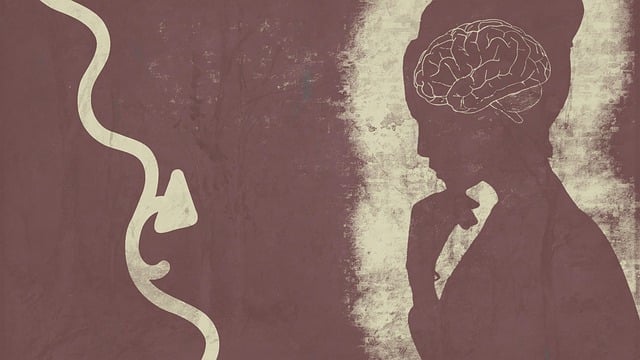Centennial Self-Esteem Therapy focuses on comprehensive risk assessment and harm minimization through culturally sensitive practices. By addressing emotional triggers and cultural factors, therapists create a secure environment using mindfulness meditation, open communication, and mental illness stigma reduction efforts. The therapy empowers clients with self-care exercises to build resilience and overcome low self-esteem, preventing burnout. Individualized planning, tailored interventions, and regular assessments ensure targeted support for unique client needs, promoting long-term mental wellness through Mind Over Matter principles.
In today’s therapeutic landscape, comprehensive risk assessment and harm minimization planning are paramount for ensuring client safety and effective treatment. This article delves into crucial aspects of these processes, including identifying potential hazards in therapy and exploring innovative approaches like Centennial Self-Esteem Therapy. We discuss strategies for tailored, individualized planning, continuous evaluation, and adjustment to safeguard clients’ well-being over the long term.
- Understanding Risk Assessment: Identifying Potential Hazards in Therapy
- The Role of Harm Minimization: Strategies for Safe and Effective Practice
- Centennial Self-Esteem Therapy: A Unique Approach to Risk Management
- Individualized Planning: Tailoring Strategies for Diverse Client Needs
- Continuous Evaluation and Adjustment: Ensuring Long-Term Well-being
Understanding Risk Assessment: Identifying Potential Hazards in Therapy

Risk assessment is a cornerstone of effective therapy practices, especially within the context of Centennial Self-Esteem Therapy. It involves meticulously identifying and evaluating potential hazards or risks that might arise during the therapeutic process, ensuring the safety and well-being of clients. By acknowledging these risks, therapists can proactively develop strategies to minimize harm, fostering a more secure environment for healing.
In therapy, potential hazards may manifest as emotional triggers, past traumatic experiences, or cultural factors. For instance, Cultural Sensitivity in Mental Healthcare Practice plays a vital role in recognizing and addressing the unique challenges clients from diverse backgrounds might face. Resilience Building is another key aspect, helping individuals cope with and overcome identified risks. Through these approaches, therapists guide their clients towards improved mental wellness, offering tailored support and practical Mental Wellness Journaling Exercise Guidance to enhance self-awareness and management of potential triggers.
The Role of Harm Minimization: Strategies for Safe and Effective Practice

Harm minimization is a vital component of any comprehensive risk assessment strategy, particularly within the context of mental health practices like Centennial Self-Esteem Therapy. It involves implementing strategies to reduce potential harm and promote well-being while ensuring client safety. One key approach is integrating mindfulness meditation techniques into therapy sessions. By encouraging clients to focus on the present moment and cultivate awareness, therapists can help individuals develop coping mechanisms that enhance resilience and self-regulation. This not only minimizes risks of emotional distress but also fosters a sense of calm and control.
Effective harm minimization planning requires a multi-faceted approach. Communication strategies play a significant role in this process. Therapists should maintain open and transparent dialogue with clients, ensuring they understand potential risks and the therapeutic framework. Moreover, addressing Mental Illness Stigma Reduction Efforts is essential to creating a supportive environment where clients feel comfortable discussing their experiences without fear of judgment. Through these collaborative efforts, therapists can empower individuals to actively participate in their healing journey, further enhancing the overall effectiveness of Centennial Self-Esteem Therapy.
Centennial Self-Esteem Therapy: A Unique Approach to Risk Management

Centennial Self-Esteem Therapy offers a unique and innovative approach to risk management, focusing on fostering self-care practices and enhancing self-awareness exercises. This therapy recognizes that an individual’s sense of self-worth is intrinsically linked to their overall well-being and ability to navigate risks effectively. By targeting the root causes of low self-esteem, this therapeutic method empowers individuals to develop robust burnout prevention strategies for healthcare providers, enabling them to better manage stress and challenge adverse situations.
The therapy encourages individuals to engage in introspective practices, helping them recognize their strengths and overcome limiting beliefs. This process not only enhances decision-making abilities but also strengthens resilience, a crucial aspect of harm minimization planning. Through tailored Self-Awareness Exercises, Centennial Self-Esteem Therapy equips individuals with the tools needed to navigate complex situations, promoting a healthier balance between personal and professional life—a key component in preventing burnout among healthcare providers.
Individualized Planning: Tailoring Strategies for Diverse Client Needs

In the realm of mental healthcare, individualized planning is a cornerstone of effective risk assessment and harm minimization strategies. Tailoring therapeutic approaches to meet the unique needs of each client, such as those engaging in Centennial Self-Esteem Therapy, is paramount. Every individual navigates challenges differently, influenced by personal history, cultural background, and distinct life experiences—factors that shape their mental wellness journey. Therefore, a culturally sensitive approach becomes an indispensable tool. By integrating Cultural Sensitivity in Mental Healthcare Practice, therapists can create personalized plans that resonate with diverse client populations.
This individualized planning process involves not only understanding the client’s current mood management challenges but also exploring underlying causes and triggers. Incorporating elements from Mental Wellness Coaching Programs Development allows for a holistic approach, addressing not just symptoms but also fostering resilience and adaptive coping mechanisms. This strategy ensures that each client receives targeted interventions aligned with their personal goals, enhancing overall well-being and mitigating risks effectively.
Continuous Evaluation and Adjustment: Ensuring Long-Term Well-being

In the context of Centennial Self-Esteem Therapy, continuous evaluation and adjustment are vital for ensuring long-term well-being. This dynamic approach recognizes that mental health is an ever-evolving journey, where progress and setbacks often go hand in hand. Regularly assessing a client’s emotional state, thoughts, and behaviors allows therapists to tailor interventions effectively. By staying agile, this method enables the exploration of new strategies and techniques, fostering a deeper understanding of the individual’s unique needs. Such adaptability is crucial for navigating life’s complexities, ensuring that the therapy remains relevant and impactful over time.
The process involves not just assessing risks but also adjusting harm minimization plans accordingly. This proactive approach leverages the Mental Wellness Podcast Series Production and Mental Wellness Coaching Programs Development as educational tools to empower individuals with knowledge and skills for self-regulation. Embracing Mind Over Matter Principles, clients learn to challenge negative thought patterns, build resilience, and make informed choices that contribute to their overall mental wellness. Through continuous evaluation, therapists can guide clients towards sustainable recovery and enhanced self-esteem, promoting a healthier, more fulfilling life in the long run.
Centennial Self-Esteem Therapy offers a comprehensive framework for risk assessment and harm minimization in therapy. By identifying potential hazards, implementing tailored strategies, and continuously evaluating progress, therapists can ensure safe and effective practice that promotes long-term well-being. This unique approach underscores the importance of individualized planning, enabling practitioners to navigate complex client needs and foster positive outcomes.








